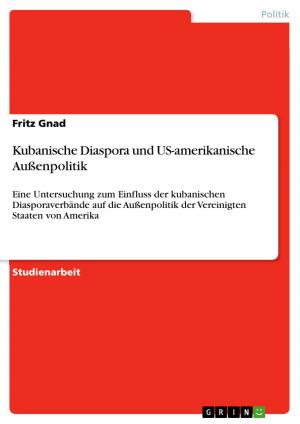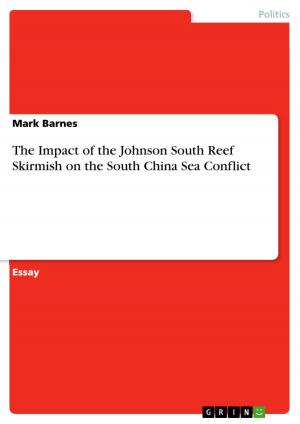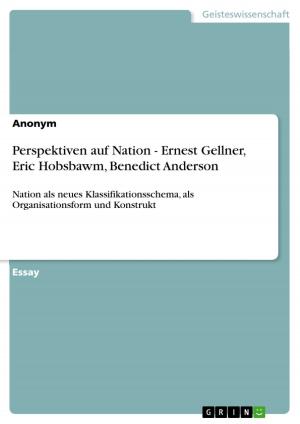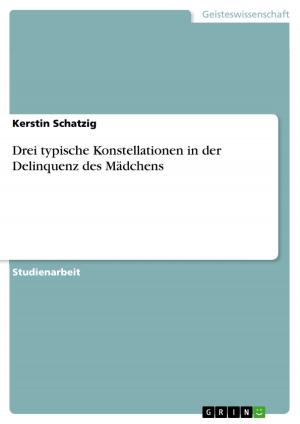Colonialist discourse in The Tempest: Fact or myth
Fiction & Literature, Literary Theory & Criticism, British| Author: | Jenny Roch | ISBN: | 9783638376785 |
| Publisher: | GRIN Verlag | Publication: | May 11, 2005 |
| Imprint: | GRIN Verlag | Language: | English |
| Author: | Jenny Roch |
| ISBN: | 9783638376785 |
| Publisher: | GRIN Verlag |
| Publication: | May 11, 2005 |
| Imprint: | GRIN Verlag |
| Language: | English |
Seminar paper from the year 2005 in the subject English - Literature, Works, grade: 15/20, University of Glasgow (Department of English Literature), course: Shakespeare/module11/ University of Glasgow, 9 entries in the bibliography, language: English, abstract: Ever since its publication in 1609 (?), The Tempest has been a hugely appreciated play, most probably on account of its ability to satisfy everyone's taste: music and dancing, action, suspense, comedy and love, The Tempest has got it all. But just as the play is enjoyable, it is also complicated, multilayered. Recent criticism of the play, especially since the 1950s, has focused on the colonial discourse supposedly underlying the play. Stephen Greenblatt for instance, on the sub ject of Caliban, argues that he 'is anything but a Noble Savage'. For James Smith, he is 'one of the most obviously nightmarish figures in the play'. I have in the past six months seen two productions of The Tempest, and never did it strike me as being a play infused with colonial discourse. Although Shakespeare's interest in other cultures and exploring the 'exotic', the 'other' pervades the entire corpus of his work, one should be careful about freely associating this curiosity of the unknown with colonial discourse- whether deliberate or unintentional on Shakespeare's part- or race-writing. 'In discussion of value, Shakespeare is, of course, invariably treated as a special case, having come to serve as something like the gold standard of English Literature'. Although this is a contestable statement in itself, the aim of this essay is not to discuss the authority and reliability of Shakespeare as a playwright, but to question the views which label The Tempest as a colonial, post-colonial, proto - colonial play. There is no need to discuss the existence of othering in the play, as this would be stating the obvious. Rather, I would like to show that, although many incidents in the play may invite a reader to a colonial reading of the text, they can just as well be over- interpretations and fall victim to a subjugation of a discourse foreign to Shakespeare's intentions.
Seminar paper from the year 2005 in the subject English - Literature, Works, grade: 15/20, University of Glasgow (Department of English Literature), course: Shakespeare/module11/ University of Glasgow, 9 entries in the bibliography, language: English, abstract: Ever since its publication in 1609 (?), The Tempest has been a hugely appreciated play, most probably on account of its ability to satisfy everyone's taste: music and dancing, action, suspense, comedy and love, The Tempest has got it all. But just as the play is enjoyable, it is also complicated, multilayered. Recent criticism of the play, especially since the 1950s, has focused on the colonial discourse supposedly underlying the play. Stephen Greenblatt for instance, on the sub ject of Caliban, argues that he 'is anything but a Noble Savage'. For James Smith, he is 'one of the most obviously nightmarish figures in the play'. I have in the past six months seen two productions of The Tempest, and never did it strike me as being a play infused with colonial discourse. Although Shakespeare's interest in other cultures and exploring the 'exotic', the 'other' pervades the entire corpus of his work, one should be careful about freely associating this curiosity of the unknown with colonial discourse- whether deliberate or unintentional on Shakespeare's part- or race-writing. 'In discussion of value, Shakespeare is, of course, invariably treated as a special case, having come to serve as something like the gold standard of English Literature'. Although this is a contestable statement in itself, the aim of this essay is not to discuss the authority and reliability of Shakespeare as a playwright, but to question the views which label The Tempest as a colonial, post-colonial, proto - colonial play. There is no need to discuss the existence of othering in the play, as this would be stating the obvious. Rather, I would like to show that, although many incidents in the play may invite a reader to a colonial reading of the text, they can just as well be over- interpretations and fall victim to a subjugation of a discourse foreign to Shakespeare's intentions.















